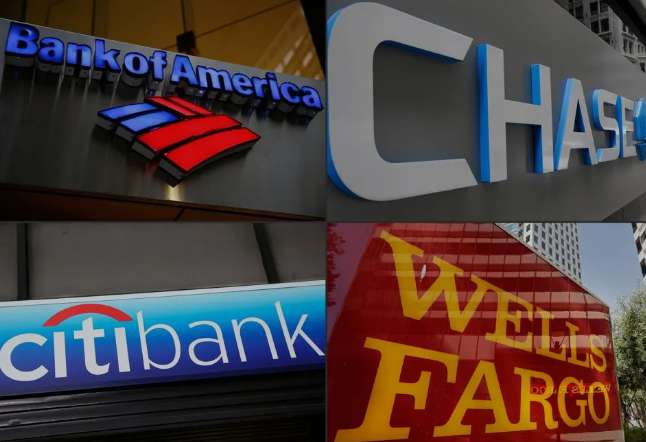Bank Earnings Season Kicks Off: Do Bank Stocks Still Have Room to Run?
As major U.S. banks officially kick off earnings season this week, strategists point out that the markets conservative expectations for Wall Street profits may create favorable conditions for bank sto

As major U.S. banks officially kick off earnings season this week, strategists point out that the market's conservative expectations for Wall Street profits may create favorable conditions for bank stocks to sustain their strong performance.
The banking sector has seen significant gains recently. The KBW Bank Index, which includes 24 institutions such as JPMorgan Chase (JPM.US) and Citigroup (C.US), has surged about 37% since its April low and is now near record highs. This rally has not only outpaced the S&P 500 over the same period but also exceeded the roughly 31% gain of the tech-heavy Nasdaq 100 Index.
Notably, there is a notable divergence in market expectations for the earnings of financial stocks. Bloomberg Intelligence data shows that while the financial sector is expected to contribute 18.6% of the S&P 500's overall earnings, its current weighting in the index is only 13.7%—a gap that exceeds the index's 15-year average.
Analysts on average predict that the S&P 500 Financials Index's Q2 earnings will decline about 1% year-over-year. Bloomberg strategists Gina Martin Adams and Michael Casper noted in a report: "Investors appear to have baked little hype into financials' earnings, and that leaves room for a fair number of surprises to sustain the sector's rally."
This week will see earnings reports from several heavyweight banks. JPMorgan, Citigroup, and Wells Fargo (WFC) will release results on Tuesday, followed by Goldman Sachs (GS.US), Morgan Stanley (MS.US), and Bank of America later in the week. Improved regulatory conditions serve as a key tailwind for the sector. KBW analyst Christopher McGratty believes the banking industry is experiencing a "significant positive regulatory shift," with large institutions like JPMorgan and Bank of America poised to benefit the most from looser policies.
With the Federal Reserve completing its stress tests this month, the market widely expects banks to update capital management plans, including potential increases in stock buybacks. A potential softening of Basel III international capital rules could further enhance capital flexibility.
Expectations for trading revenue growth are also boosting market confidence. After the Trump administration announced tariff exemptions for "Liberation Day" in April, trading volumes for some firms hit record highs. However, the sector still faces multiple challenges: the S&P 500 Financials Index currently trades at about 17 times forward 12-month earnings, above its 10-year average of 14 times.
Specific impacts of the trade war on bank profits, uncertainty around the Fed's rate-cut path, and potential volatility in consumer credit quality all pose downside risks. HSBC earlier this month downgraded JPMorgan, Goldman Sachs, and Bank of America, citing "macro uncertainty."
But bullish analysts argue that regulatory easing and earnings growth will continue to drive the sector higher. Wells Fargo analyst Mike Mayo stated: "Current share prices do not yet fully reflect the potential for improved industry fundamentals." The strategist, who accurately predicted the financial sector's rebound in early 2023, emphasized that multiple tailwinds could sustain upward momentum for bank stocks.
Disclaimer: The views in this article are from the original Creator and do not represent the views or position of Hawk Insight. The content of the article is for reference, communication and learning only, and does not constitute investment advice. If it involves copyright issues, please contact us for deletion.